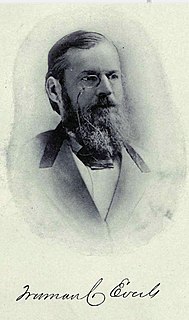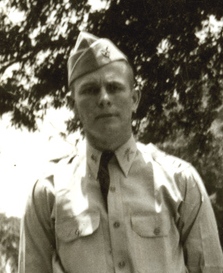 W
WAnita F. Alpern was an assistant commissioner of the Internal Revenue Service. At the time of her retirement in the late 1970s, she was the highest ranking woman in the federal career service.
 W
WMichele Marie Bachmann is an American politician who was the U.S. Representative for Minnesota's 6th congressional district from 2007 until 2015. A member of the Republican Party, she was a candidate for President of the United States in the 2012 election, but lost the Republican nomination to Mitt Romney.
 W
WJoseph Leonard Carrigg was a Republican member of the U.S. House of Representatives from Pennsylvania.
 W
WJoseph Patrick Courtney was an American football player, coach, and official. He served as the head football coach at Boston College in 1911 and Norwich University in 1915, compiling a career college football coaching record of 0–15.
 W
WThe Chief, Internal Revenue Service, Criminal Investigation, abbreviated as Chief, IRS-CI or Chief, CI or simply Chief, is the head and chief executive of Internal Revenue Service, Criminal Investigation (IRS-CI), the United States' federal law enforcement agency responsible for investigating potential criminal violations of the U.S. Internal Revenue Code and related financial crimes. Criminal Investigation is a division of the Internal Revenue Service, which in turn is a bureau within the United States Department of the Treasury. The Chief is the highest ranking executive within IRS-CI and reports to the Deputy Commissioner for Services and Enforcement of the Internal Revenue Service.
 W
WDon Fort is an American law enforcement officer who served as the 24th Chief of Internal Revenue Service, Criminal Investigation (IRS-CI) from June 1, 2017 to September 30, 2020. As Chief, Fort oversaw a worldwide staff of approximately 3,300 CI employees, including approximately 2,200 special agents who investigate and assist in the prosecution of criminal tax, money laundering, public corruption, cyber, ID theft, narcotics, terrorist-financing and Bank Secrecy Act related crime cases.
 W
WRichard Weber is an American public servant currently serving as the General Counsel of the New York State Department of Financial Services. He was the 23rd Chief of Internal Revenue Service, Criminal Investigation (IRS-CI) from April 1, 2012 to May 31, 2017.
 W
WTruman C. Everts was the first federal tax assessor for the Montana Territory and a member of the 1870 Washburn–Langford–Doane Expedition, which explored the area which later became Yellowstone National Park. He was lost in the wilderness for 37 days during the expedition and a year later wrote about his ordeal for Scribner’s Monthly.
 W
WFrank Leroy Farrar was an American politician who was the 24th governor of South Dakota. A Republican from Britton, he served as the state's attorney general from 1963 to 1969, and as governor from 1969 to 1971. After leaving office, he chaired several holding companies and became the owner of numerous banks.
 W
WArthur Harvey was a businessman best known as the namesake of the Harvey Park neighborhood of Denver. He served in both World War I and II, retiring at the rank of major.
 W
WThomas Lemuel "Lem" Johns was a member of the United States Secret Service present during the assassination of John F. Kennedy and the first inauguration of Lyndon B. Johnson.
 W
WLois Gail Lerner is an American attorney and former United States federal civil service employee. Lerner became director of the Exempt Organizations Unit of the Internal Revenue Service (IRS) in 2005, and subsequently became the central figure in the 2013 IRS targeting controversy in the targeting of politically-aligned groups, either denying them tax-exempt status outright or delaying that status until they could no longer take effective part in the 2012 election. On May 10, 2013, in a conference call with reporters, Lerner apologized that Tea Party groups and other groups had been targeted for audits of their applications for tax-exemption. Both conservative and liberal groups were scrutinized. Only three groups — all branches of the Democratic group Emerge America — had tax exemptions revoked. Lerner resigned over the controversy. An investigation by the U.S. Department of Justice and Federal Bureau of Investigation, completed in 2015, found "substantial evidence of mismanagement, poor judgment and institutional inertia" but "found no evidence that any IRS official acted based on political, discriminatory, corrupt, or other inappropriate motives that would support a criminal prosecution."
 W
WMajor General Henry W. McMillan was an Adjutant General of Florida (1962-1975) and a longstanding service member in the Florida National Guard and the United States Army.
 W
WNina E. Olson is a former United States Taxpayer Advocate, and former head of the Office of the Taxpayer Advocate, a government office dedicated to helping taxpayers solve their problems with the Internal Revenue Service. From 1975 to 1991, she was a tax preparer in Chapel Hill, North Carolina.
 W
WWilliam Orton was an American Democratic politician who served as a member of the United States House of Representatives from Utah from 1991 to 1997.
 W
WChristopher Harrison (C.H.) Payne (1845–1925) was a prominent religious, educational and political leader of the late nineteenth and early twentieth centuries. Despite being born in the American South during the time of slavery, Payne rose to a level of prominence achieved by few, regardless of race. Among his many accomplishments was being the first African American elected to the West Virginia Legislature.
 W
WFrancis Harrison Pierpont, called the "Father of West Virginia," was an American lawyer and politician who achieved prominence during the American Civil War. During the conflict's first two years, Pierpont served as Governor of the Restored Government of Virginia and in this capacity administered the part of Virginia then under Unionist control prior to West Virginia's admission to the Union as a separate state. After recognizing the creation of West Virginia, Pierpont continued to serve as Governor of the Restored Government, although for the remainder of the war the degree of civil authority he was able to exercise was extremely limited. Having claimed to be the legitimate Governor of Virginia for the duration of the conflict, Pierpont assumed civil control of the state's entire post-1863 territory following the dissolution of the Confederacy and continued to serve as Governor during the early years of Reconstruction.
 W
WNina Wilcox Putnam was an American novelist, screenwriter and playwright. She wrote more than 500 short stories, around 1000 magazine articles, and several books in addition to regular newspaper columns, serials, comic books and children's literature. Many of her stories were made into films, including a story that was the basis for the 1932 film The Mummy starring Boris Karloff. She married four times, was estimated to have earned one million dollars from her writing, and drafted the first 1040 income tax form for the IRS.
 W
WJorge Rodriguez-Chomat was a Cuban-American politician and judge. He was a one-term member of the Florida House of Representatives representing a district in West Miami for the Republican Party from 1994 until his defeat in 1998. He served as a Judge of the Criminal and Family Divisions of the Eleventh Judicial Circuit Court of Florida from 2011 until his retirement in 2017.
 W
WFrank Owens Smith was a businessman and served in the U.S. House of Representatives.
 W
WGregory Hayes Swanson, LL.B, A.B.,. Swanson was the first African American to attend the University of Virginia. He graduated from Howard University in 1945 with a Bachelor's degree in political science and then from the Howard University School of Law in 1948 with an LL.B.. After law school, Swanson clerked for the Richmond, Virginia law firm Hill, Martin, & Robinson and then for attorney Jerry L. Williams in Danville, Virginia. In 1949, Swanson applied to the LL.M. program at the University of Virginia School of Law to pursue graduate work. He had recently opened his own law firm in Martinsville, Virginia, and wrote to the UVA Law Committee on Admissions that his "primary reason" for applying to the law school's LL.M. program was his "desire to teach." On January 12, 1950, the UVA law faculty voted to admit Swanson to the law school, and they sent the matter to UVA President Colgate Darden for a final decision. The University's Board of Visitors rejected Swanson's application on July 14, 1950 with the claim that his admission would violate Virginia state laws and the state constitution. Swanson filed a complaint in the U.S. District Court for the Western District of Virginia to gain admission to the law school for the fall 1950 term. The firm of Hill, Martin, & Robinson and the Virginia chapter of the NAACP, including Thurgood Marshall, served as Swanson's legal counsel. Chief Justice John J. Parker of the Fourth United States Circuit Court of Appeals, Federal District Judge John Paul, and Circuit Appeals Judge Morris A. Soper presided over the ensuing case, Swanson v. Rector & Visitors of Univ. of Va. On September 5, 1950, the court ruled in favor of Swanson's admission to the UVA School of Law on the grounds that he was a qualified applicant and that UVA was the only institution in the state at which Swanson could pursue a graduate degree in law. Swanson registered for classes as a graduate student in the law school on September 15, 1950. This case laid the foundation for desegregation at the University of Virginia.
 W
WAlbert W. Wishard was an American attorney and politician. Wishard served in the Indiana State Senate for two terms and was a United States Attorney. A Republican, Wishard was also was the campaign manager for Charles W. Fairbanks two Senate campaigns.